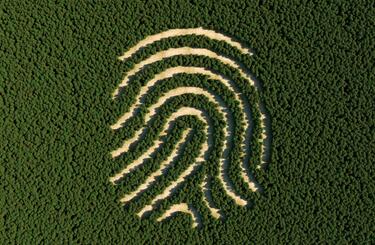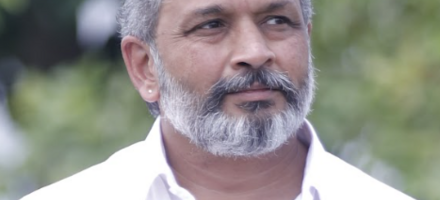
Changing the direction of quality for a sustainable future
Progress indicator

Lowellyne James CQP FCQI, highlights the need for quality professionals to be at the forefront of the fight to combat the impact of climate change.
The quality roles we have today are a recent phenomenon, especially if we reflect on the evolution of quality in the early twentieth century, when gurus such as Joseph M Juran and W Edwards Deming were alive.
It was not until late in the twentieth century that we began to have a proliferation of job titles such as quality auditor, quality manager and quality inspector.
When I began my quality journey in the 1990s, as a lab technician, job roles were not labelled ‘quality’, but were stated in purely functional terms – lab technicians, lab manager, factory manager, engineering manager, etc.
Quality needs to continue to evolve from the seminal concepts and ideas that the original gurus proposed, such as plan, do, check, act (PDCA) and the Juran Trilogy. These frameworks form some of the founding principles that we still use today.
However, Juran and Deming never faced the seemingly insurmountable challenge of climate change, the ultimate threat multiplier that exacerbates other sustainability issues such as poverty, health and wellbeing.
Improving the quality of life was the original intention of the gurus, I believe, but they framed this through a very linear lens, mirroring existing input-output economic approaches.
The reason for linear perspective was because their big challenge was variation reduction – ensuring that products and services were consistent, limiting loss to the business.
In the case of Deming, who, as a statistician, was instrumental to the US war effort, he was also focused at that time on ensuring the World War II Allies built ships, tanks and airplanes of superior quality than those of Germany, Italy and Japan.
Now we are facing a different crisis on a global scale, but there appears to be limited leadership from the quality profession for sustainable development.
Quality, safety and environmental professionals have actually been usurped by accountants!
Sustainability reporting standards and regulations have been developed to support climate-related financial disclosure, so, arguably, are not directed towards delivering holistic sustainability or quality-of-life outcomes.
Instead, there is emphasis on double materiality, where companies must report on how their business is impacted financially by sustainability issues and the impact of commercial activities on the environment.
As such, the ‘assurance of sustainability’ statements and reports are increasingly perceived as the domain of accounting professionals. This means quality of life is not central to the assurance of sustainability; it is pointed towards market-related factors.
"We should be focused on the collaborative use of quality management tools, frameworks and standards as a catalyst for sustainable development within businesses and organisations, to achieve a better life for all humans and ensure other species continue to flourish on our planet."
Notwithstanding, there is a gap between the work of twentieth-century quality management gurus and its applicability to the prevailing operational context overshadowed by global mega-forces such as climate change and urbanisation.
With all due respect to the work that Deming, Juran and others have done, we now need to take these underpinning frameworks and translate them for the twenty-first century.
For most of the previous century, the focus was understanding loss and reducing variation – those were the original big themes. As quality professionals, we now have to help businesses and society resolve the dilemma of profit or planet; supporting the ability of life on our planet to continue to flourish.
When we talk about climate change, it is no longer a case of global warming – it is global boiling. Climate change and its impacts, such as droughts and forest fires, are affecting quality of life and that is where the new challenge lies for the quality profession.
We should be focused on the collaborative use of quality management tools, frameworks and standards as a catalyst for sustainable development within businesses and organisations, to achieve a better life for all humans and ensure other species continue to flourish on our planet.
Drawing on experience
My own journey in sustainability, as part of my quality career, began with a challenge. I was working at a relatively small refrigeration and air conditioning manufacturing company in Scotland that was facing a challenge: aligning its eco-friendly products and services with environmentally friendly processes. Essentially, it was making these products, but burning the Earth to do so.
We began with the usual methods of understanding processes, and process mapping and improvement, then we began looking at the environmental impact and aspects of the processes.
The impacts were better understood by using a process-based approach, but we adopted a more carbon-driven way of thinking; not a full circular economy approach, but a circularity perspective, using carbon footprint equivalents as key indicators of our overall impact as an organisation.
The knowledge gained from our carbon footprint measurement was that the weight of each waste stream generated was small compared with the overall impact, if looked at from a carbon-emissions perspective.
As a quality professional, I am seasoned in conventional quantitative approaches, in terms of measuring waste produced in kilograms or tonnes, rather than by its environmental, social and governance (ESG) impacts.
Armed with this understanding, I disseminated this knowledge within the organisation, acting as a catalyst to search for alternative inputs – for example, non-ozone depleting refrigerants that had limited or no impact on the environment – and to make a cultural shift towards viewing waste as a resource rather than a loss to the business.
Emerging from that challenge, my desire for improvement evolved into exploring the application of quality methodology to sustainable development systems and standards, to move the pendulum of sustainability in a more technical direction.
It became clear that I wanted to establish myself as a quality practitioner who loves sustainable development. With this passion, I co-created a sustainable development goal measurement, verification and reporting platform with colleagues at SDG Assessment. It provides the sustainability assurance necessary for businesses to align strategy and demonstrate ESG performance.
Sustainability assurance is an emerging topic, and we are trying to apply digital and mobile technology, rather than persisting with the use of inefficient paper-based formats.
There is a lot of work still to be done, but I believe quality professionals are best placed to assist their organisations in developing the sustainable approach that is essential for combating the impacts of climate change.
Taking sustainability into the boardroom
Corporate sustainability should be at the heart of boardroom activity, says Zoi Kontodimou, Chair of the CQI’s Sustainability special interest group.
Quality World

Get the latest news, interviews and features on quality in our industry leading magazine.
Join the conversation

Become a member and you too could input into future revisions of standards such as ISO 9001.

